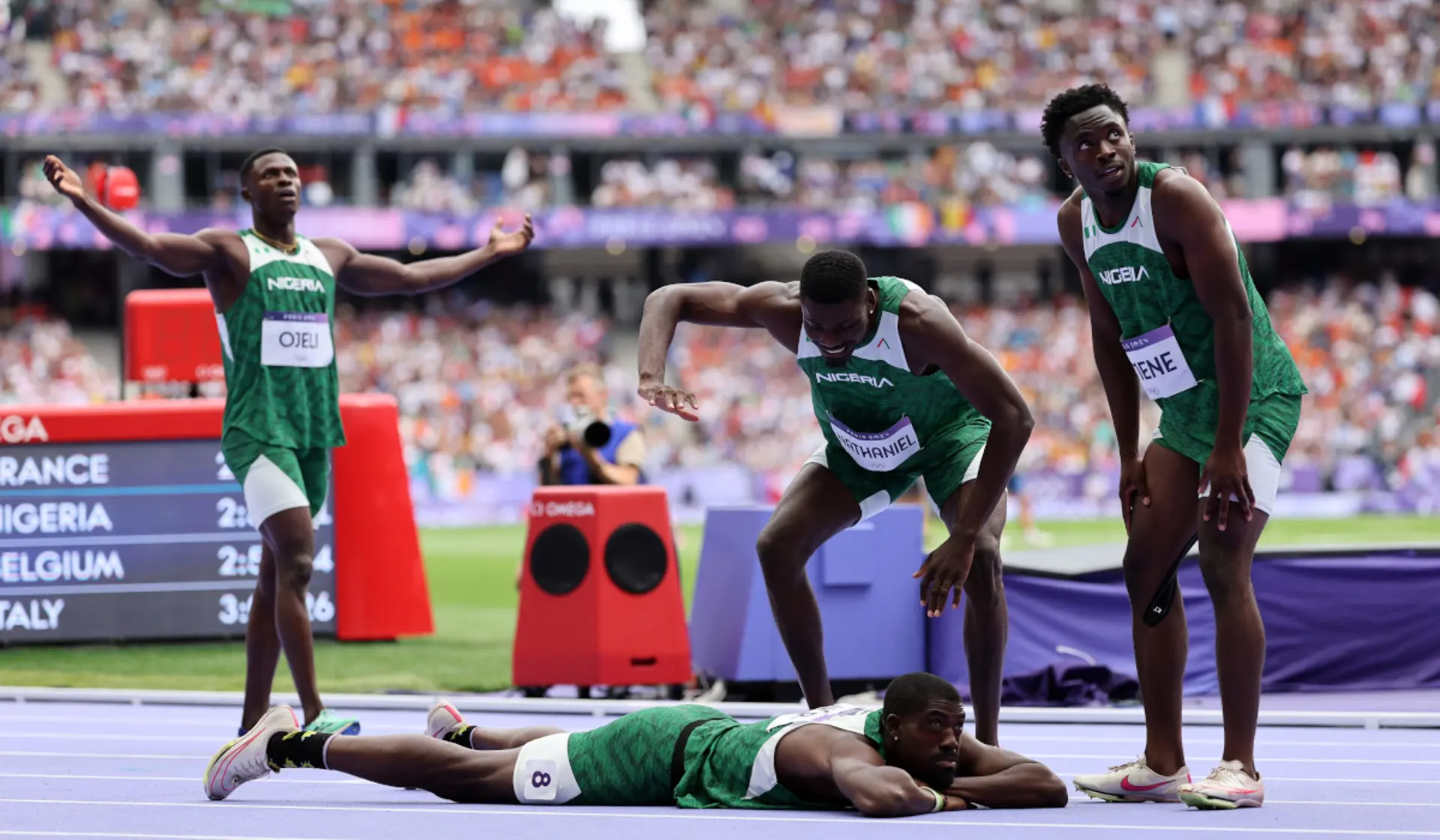Nigeria sports under scrutiny after 'disastrous' Olympics

After Nigeria failed to win any medals in the Olympics, sporting officials are under pressure from accusations of incompetence and calls for reform over what the sports minister branded a "disastrous outcome" in Paris.
While smaller nations on the continent came home with multiple medals, the Giant of Africa left empty-handed for the first time since the 2012 London Olympics.
Despite fielding continental champions like 100m hurdles record holder Tobi Amusan, Africa's most populous nation did not live up to Olympic expectations.
A day after the Olympics closed, former and current Olympians lashed out at the country's sporting federations calling for a shakeup in organisations they say failed their athletes.
"I must apologise to our compatriots and reflect on what went wrong," Sports Minister John Owan Enoh said on social media after Paris.
He said when he assumed the ministry less than a year before the Games, he learned that Nigeria's Olympics preparations had not even started.
"As a country, we deserve more," he said. "Let's turn the disastrous outcome of the 2024 Olympics to a huge positive for Nigerian sports."
Nigeria's best haul in the Olympics was in Atlanta in 1996 when the team won two golds, one silver and three bronzes. Beijing brought five medals in 2008, but there were zero in London four years later.
Atlanta Olympics gold medal winner in the long jump, Chioma Ajunwa, said Nigeria's sporting federations needed a shakeup to bring in sports people who knew what they were doing.
"They should stop recycling the old administrative officers that never know what they are doing," she told Arise News channel.
"It is quite disheartening that every year, Nigeria will be telling this kind of story.
REPEATED MISTAKES
"Olympic sprinter Favour Ofili accused officials at the Athletics Federation of Nigeria of leaving her out of the Paris 100 metres race due to administrative failures even after she qualified.
Similar accusations dogged Nigeria during the Tokyo Olympics when a group of Nigerian athletes were unable to compete because they said sporting federations did not release funds to carry out the right pre-Games tests.
"I have worked for four years to earn this opportunity. For what?" Ofili wrote on X, formerly Twitter.
"This is not the first time you guys are doing this so don't think this is over because it's not."
Officials from the athletics federation did not respond to calls. But a senior source from Nigeria's sporting administration told AFP officials withdrew Ofili to let her focus on the 200 metre race.
"The decision to withdraw her from 100m was by AFN, but apparently this was not communicated to the athlete," the source said.
Sports Minister Enoh said he was questioning officials about why Ofili was left out of the 100 metres race.
Ofili came sixth in the 200 metres final in her Olympic debut in Paris. Hurdler Tobi Amusan came third in her heat and did not qualify for the final.
Hameed Adio, former 100 metres sprinter and Olympic team captain, said the country needed more preparation and better organisation.
"Until we consider sports as big business and treat it as such and not just a pastime and also see that those running our sports are technically sound, experienced and patriotic, the results will remain as we had at Paris 2024," he said.
"We have to do away with the 'fire brigade' approach to our preparations to the Olympics."
One bright spot for Nigeria was women's basketball under the guidance of Rena Wakama who was recognised as Best Female Basketball Coach at the Games for the team's "incredible run", according to the International Basketball Federation.
They beat Canada to become the first African team to reach the quarterfinals where they lost to eventual gold medalists USA.
Advertisement

